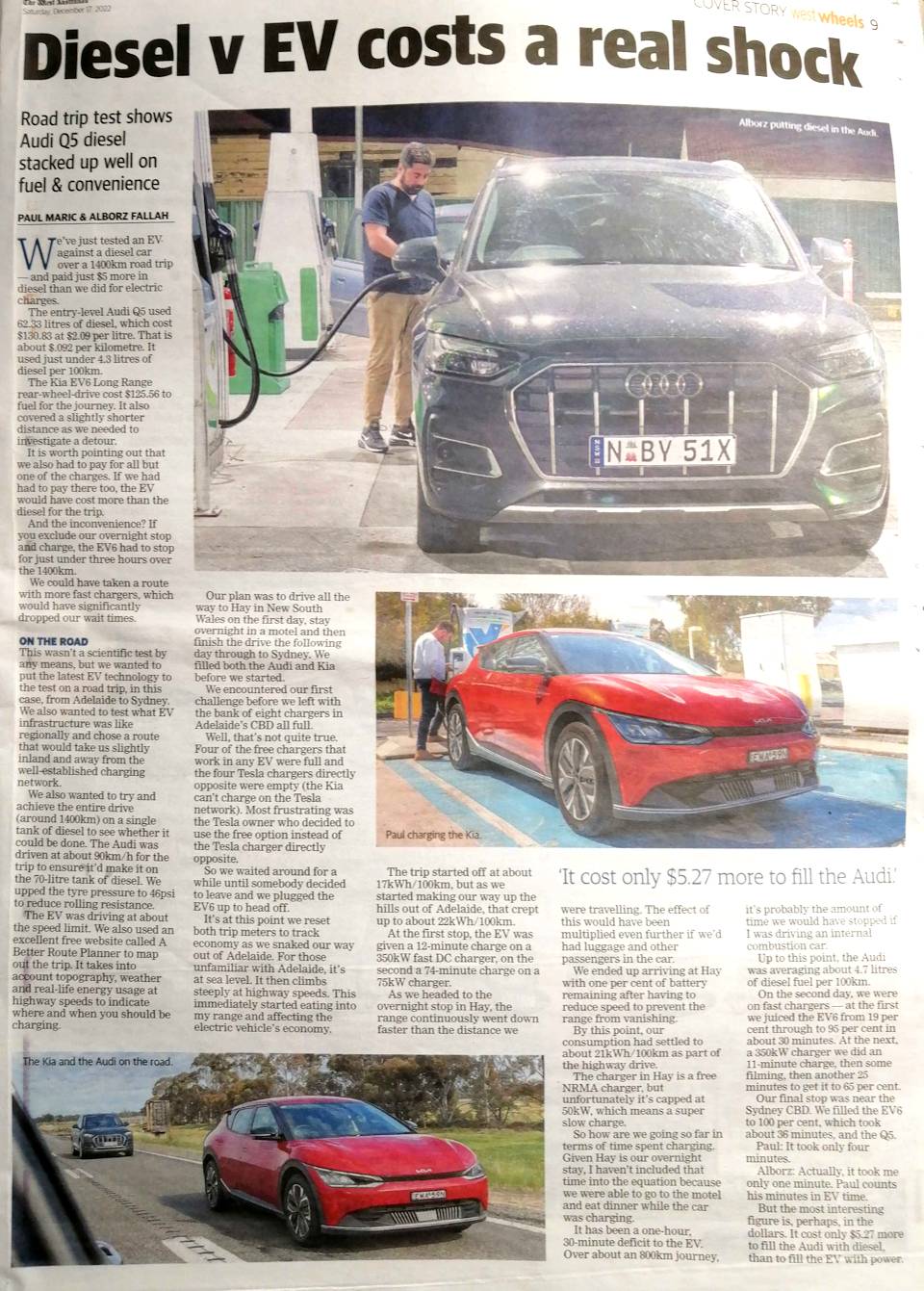Electric vehicle reality check
Some of our State Governments in Australia have decreed that all
new vehicles sold from 2030-2040 must be battery-powered -- even
hybrid vehicles are out. link
I was reading recently, a guy said that owning an electric vehicle without a power-point to plug it into at night, is hell. This situation would cover a lot of people; those who live in apartments with parking bays and no power, and those who have to park in the street.
What those people have to do is try and find a charging station while driving to or from work. If work is a fairly long commute, that could mean recharging every trip or second round-trip.
As electric vehicle uptake increases, it will probably mean a wait in a queue to recharge. Then there are charging stations that are broken, which currently here in Western Australia is depressingly frequent.
Once at the head of the queue, if it is a fast-charger, good, except that every time you fast-charge, the battery range decreases. It decreases more and more, so you have to fast-charge more frequently.
Then there's the running cost. This is touted as one of the advantages of electric vehicles; however, read this article from our local newspaper, "The West Australian", Saturday, December 17, 2022:

As the article points out, one of the charging stations was free, so actually, the electric vehicle cost more for the 1,400km (870 miles) trip.
Then there's the convenience. The Audi did almost the entire trip on one tank of diesel. The Kia required frequent long stops, and the range penalty of fast charging is mentioned.
In the news awhile back, there was a case of an electric vehicle running out of power on a rural road. The car had to be towed to the nearest charging station. Until there are portable charging stations, towing is the only option.
I reckon that as 2030-2040 (whatever the deadline will be in your State) approaches, there will be exceptions to the all-electric law, for those who have to drive in remote rural regions.
Might be a good idea to own a petroleum-powered engine before the
deadline, as it's value is likely to go steadily upward afterward
-- unless the Govt introduces disincentives to own or drive a
non-electric vehicle.
Tags: ethos
